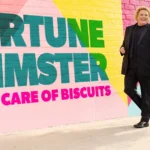Here’s How We Can Make It Happen Together…
Recovery isn’t easy. It’s a word that conjures up hard work, honesty, and maybe a bit of fear. But for LGBTQ women, the journey to sobriety often holds extra layers. The risks are real—higher rates of substance use, greater mental health struggles, and a lack of spaces that genuinely feel welcoming. It’s no secret that LGBTQ women face unique hurdles in both getting and staying sober. And here’s why that needs to change: empowering LGBTQ women with the tools and support they need for lifelong sobriety is about creating a future where everyone gets to be their best, healthiest, most authentic selves.
So, what does sober support look like for LGBTQ women? It’s not about a “one-size-fits-all” program but about creating spaces, resources, and tools that resonate with real lives, real struggles, and real triumphs. Let’s explore how LGBTQ women can not only get sober but stay sober for life.
Building Safe Spaces That Feel Real
When you’re LGBTQ and struggling with addiction, finding a place that truly feels like “home” can be tough. Safe spaces are critical because they let LGBTQ women be vulnerable, open up, and, most importantly, feel understood. These spaces are about more than just hanging up a rainbow flag—they’re about fostering an atmosphere where there’s no judgment, and everyone feels seen.
Community groups geared specifically toward LGBTQ women offer a place where one’s identity is part of the healing process. It’s different from a general support group because the conversations here are framed around shared experiences and struggles. In these spaces, LGBTQ women aren’t just “accepted”—they’re understood. In-person meetings, online communities, even digital support networks—all of these serve as lifelines that help LGBTQ women feel they don’t have to hide or filter their true selves.
The sense of being genuinely seen and safe is powerful. When LGBTQ women find support systems designed just for them, there’s less pressure to “explain” their identity, and the focus stays on recovery.
Breaking the Silence
For many LGBTQ women, mental health is a big part of why addiction started in the first place. It’s impossible to separate the two, and healing from substance use often requires facing these issues head-on. Anxiety, depression, trauma—these aren’t just buzzwords; they’re the real-life challenges that have driven so many LGBTQ women to self-medicate.
Mental health support isn’t just about seeing a therapist once a month. It’s about getting the right kind of help that addresses the unique pressures LGBTQ women face. Whether it’s rehabs in Fresno, D.C., or anywhere in between, treatment centers that focus on intersectional mental health care understand that the LGBTQ experience is different. Finding professionals who are not only trained in addiction but are also aware of LGBTQ-specific issues can make all the difference.
While therapy is essential, alternative practices can also play a key role in mental health recovery. Meditation, mindfulness, and trauma-informed practices help manage stress in healthy ways. It’s all about crafting a personalized toolkit for sobriety, with mental health at the core. When LGBTQ women can process their experiences in an environment that honors who they are, they’re more likely to stay on track.
Finding the Right Support Systems
One of the biggest questions LGBTQ women face in recovery is whether treatment programs actually work. Some fear they’ll face rejection or bias, while others are simply unsure if a formal program is the right fit. The truth is, finding support that understands LGBTQ identities can be challenging but essential.
Not every LGBTQ woman needs to go through an intensive rehab program, but having access to a strong support network is a must. For some, peer-led groups provide the validation and community they need. For others, LGBTQ-friendly treatment centers that emphasize individualized care make all the difference. Finding a program that values your identity and includes you in the recovery process—not just as an afterthought but as a priority—sets a strong foundation for staying sober.
These networks offer more than just a shoulder to lean on; they create accountability. LGBTQ women can see others who’ve faced similar struggles and are staying sober, which makes the goal of long-term sobriety feel more achievable. While traditional support systems can help, LGBTQ-specific resources often provide that unique perspective and solidarity that makes staying sober a little more manageable.
Redefining Sober Spaces
Socializing sober can be tricky for anyone in recovery, but for LGBTQ women, the challenge can feel magnified. Many LGBTQ-friendly events, especially nightlife scenes, are closely tied to alcohol and other substances. It can feel like you’re missing out on a huge part of your community by opting for sobriety. But that narrative is changing, and it’s an essential shift.
More sober events and meetups are emerging within LGBTQ communities, from coffeehouse socials to creative workshops and wellness retreats. These gatherings offer a way to connect without the pressure to drink, providing LGBTQ women with the chance to socialize in ways that don’t trigger their sobriety struggles. Taking charge of one’s social life also involves creating boundaries. It’s okay to be selective about where you go and who you spend time with, especially in early recovery.
LGBTQ women need to feel they can be part of their community without needing a drink in hand. By carving out spaces that foster sober friendships and connections, they’re redefining what LGBTQ community events look like. It’s not just about avoiding triggers; it’s about building a healthier way to bond.
Embracing Empowerment
Staying sober is a journey, and for LGBTQ women, it’s a journey that demands strength, resilience, and a deep sense of self-worth. This final piece of the puzzle is about reclaiming power—knowing that sobriety doesn’t mean sacrificing one’s identity or individuality. Instead, it’s about becoming who you are without the weight of substances holding you back.
Empowerment means different things to different people, but for LGBTQ women, it can often mean learning to love and respect themselves in a world that hasn’t always done the same. When they take ownership of their sobriety journey, it becomes a powerful statement. They’re not just staying sober; they’re embracing life in a way that’s intentional, authentic, and unapologetic.
Embracing empowerment is about finding joy in the sober lifestyle. For LGBTQ women, this empowerment is a lifeline, creating resilience against relapse by turning the idea of sobriety into something powerful, uplifting, and deeply meaningful. As they find strength in their recovery, they also inspire others, reinforcing a cycle of support and encouragement.
Why Sober Support for LGBTQ Women is a Lifelong Commitment
Sobriety isn’t just a one-time decision; it’s a lifelong commitment that thrives on real support and authentic connections. For LGBTQ women, this journey means challenging the norms, creating new spaces, and embracing every part of their identity without compromise. From safe spaces and mental health care to building social lives free of substances, this path to sobriety is uniquely shaped by their needs and experiences.
Empowering LGBTQ women to stay sober isn’t just about treatment; it’s about giving them the tools, support, and community they need to thrive on their terms. And when LGBTQ women feel supported, their chances of staying sober grow, paving the way for a healthier, happier, and more inclusive world.
Last modified: November 18, 2024














